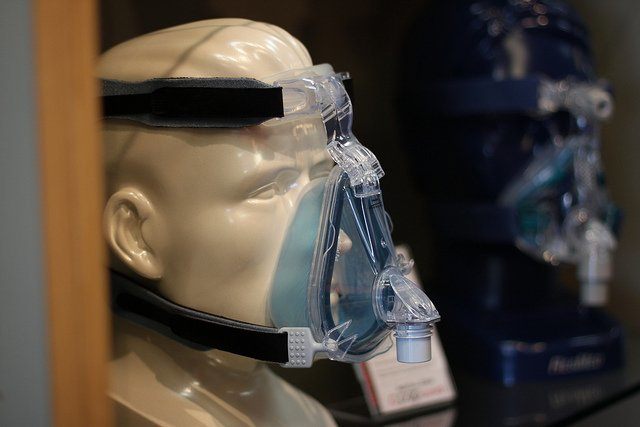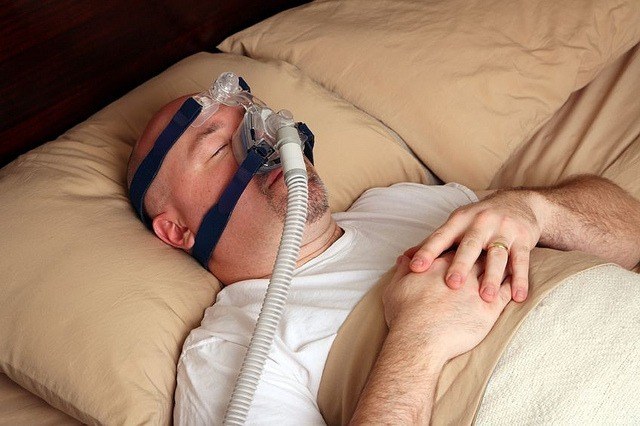A CPAP machine can be a huge asset for people with sleep apnea, as it helps your airway stay open so you receive enough oxygen while sleeping.
However, the maintenance and upkeep of your CPAP machine is an integral part of owning one.
Here are some quick things to know about the dangers of using a CPAP machine while it’s dirty.
Contents
Why Does My CPAP Machine Get Dirty?
A CPAP machine has multiple parts, including a humidifier in modern CPAP machines, a mask for the face, and a filter where the machine draws in air.
These parts all work together to ensure you get the restful night’s sleep that you need, but each part also has its own moving pieces which must be cleaned.
CPAP Filters
CPAP filters ensure that if there is dirt or debris in the air around you, you don’t breathe them in.
However, trapping that dirt and debris in the filter means that you’ll have to clean it out sooner or later.
If you don’t, you run the risk of your CPAP machine being unable to bring in enough air, leading to a recurrence of your sleep apnea symptoms, or of breathing in dirty air, which is never fun.
CPAP Mask
The mask is what guarantees that the oxygen actually runs through your airway. If you don’t clean the mask, then oils and debris from your face may accumulate on the portions where the mask touches your skin.
The straps that support the mask and hold it to your face can also become dirty for the same reasons.
CPAP Humidifier
Most modern CPAP machines have humidifiers to prevent your throat and sinuses from drying out while using your CPAP.
However, humidity is easily a breeding ground for mold and bacteria, especially if you don’t routinely clean your machine.
Using tap water in your CPAP machine, rather than distilled or sterile water, can also introduce outside bacteria.
What Happens if You Don’t Clean Your CPAP Machine
Respiratory Infections and Issues
One of the most common issues associated with a dirty CPAP machine is consistent respiratory infections, including sinus infections, pneumonia, colds, and other respiratory problems.
While regular issues of this nature may cause frequent coughing and sneezing, congestion, and pressure in the sinuses, all of which are usually treatable without antibiotics, infections caused by mold or mildew in your CPAP machine are bacterial infections, which are much more serious.
CPAP bacterial infection symptoms include stabbing chest pains, fever, muscle pain, and cough accompanied by mucus. If you’re experiencing a mix of these symptoms, go to your doctor and start cleaning your CPAP machine more frequently.
Skin Infections
While it is less common, you can end up with skin infections from not cleaning your CPAP mask well enough. This issue can be worsened if you have an existing skin condition such as psoriasis or eczema.
Because a CPAP machine often uses a silicone mask to ensure a tight fit, you will generally be discouraged from using moisturizers and facial cleansers, as it will cause the silicone to break down more quickly.
If you use moisturizers, lotions, or other facial treatments for a skin condition, talk to your doctor and find a good middle ground.
Reduced Lifespan
CPAP machines can be very expensive, especially if you’re purchasing one without insurance. Therefore, leaving your machine dirty will reduce its lifespan drastically.
By taking care of your CPAP machine and cleaning it regularly, you’ll be saving yourself money in the long run.
How to Avoid CPAP Machine Side Effects
Cleaning a CPAP machine is easier than it sounds. You will want to clean each part of the machine differently, as we describe below.
How to Clean Your CPAP Machine
Mask
To clean your mask, wash it every day using soap and warm water.
Dry the mask with a clean towel or cloth; do not place it in direct sunlight to dry.
You may also want to soak the mask in vinegar or a gentle detergent solution once a week to stave off germs.
Humidifiers and Hoses
Clean your humidifier and hoses at least once per week, either with a special cleaning solution or with soap and warm water.
If you find that you’re experiencing infection symptoms, you may need to clean it more frequently.
Always remember to remove any extra water each morning, as stagnant water is a breeding ground for bacteria.
Filters
Clean your filters with soap and warm water, then rinse with distilled water before drying.
You will have to replace your filters every so often, so be sure to check the manufacturer’s instructions for more information.
Here’s a video showing an example of how to clean a CPAP machine.
Conclusion
CPAP machines are a safe and reliable way to treat sleep apnea in many people. However, if you don’t take good care of it, you may suffer unexpected side effects.
By cleaning all parts of your CPAP machine regularly, you can keep yourself safe and healthy!







